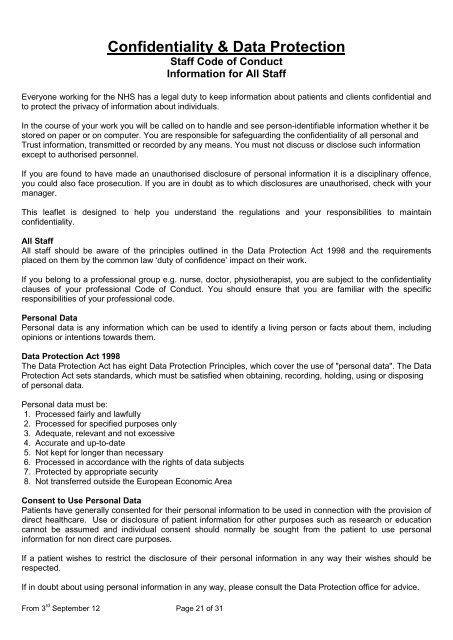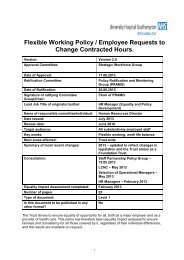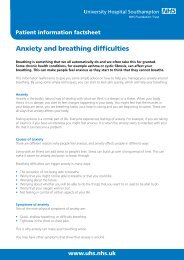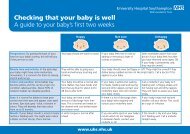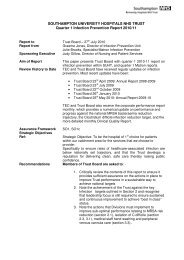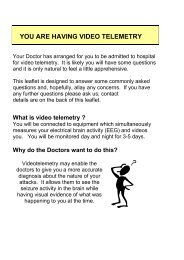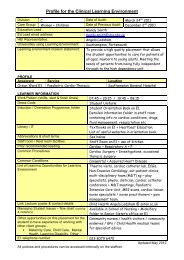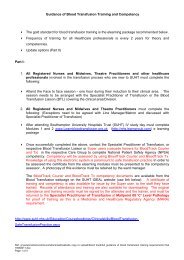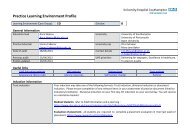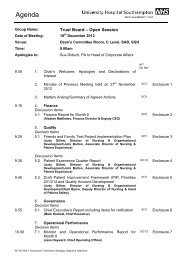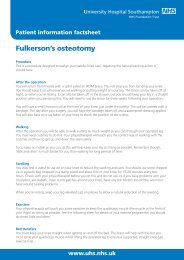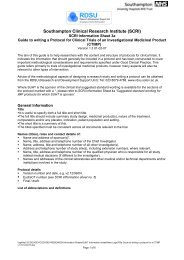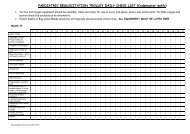Trust induction booklet - University Hospital Southampton NHS ...
Trust induction booklet - University Hospital Southampton NHS ...
Trust induction booklet - University Hospital Southampton NHS ...
You also want an ePaper? Increase the reach of your titles
YUMPU automatically turns print PDFs into web optimized ePapers that Google loves.
Confidentiality & Data ProtectionStaff Code of ConductInformation for All StaffEveryone working for the <strong>NHS</strong> has a legal duty to keep information about patients and clients confidential andto protect the privacy of information about individuals.In the course of your work you will be called on to handle and see person-identifiable information whether it bestored on paper or on computer. You are responsible for safeguarding the confidentiality of all personal and<strong>Trust</strong> information, transmitted or recorded by any means. You must not discuss or disclose such informationexcept to authorised personnel.If you are found to have made an unauthorised disclosure of personal information it is a disciplinary offence,you could also face prosecution. If you are in doubt as to which disclosures are unauthorised, check with yourmanager.This leaflet is designed to help you understand the regulations and your responsibilities to maintainconfidentiality.All StaffAll staff should be aware of the principles outlined in the Data Protection Act 1998 and the requirementsplaced on them by the common law ‘duty of confidence’ impact on their work.If you belong to a professional group e.g. nurse, doctor, physiotherapist, you are subject to the confidentialityclauses of your professional Code of Conduct. You should ensure that you are familiar with the specificresponsibilities of your professional code.Personal DataPersonal data is any information which can be used to identify a living person or facts about them, includingopinions or intentions towards them.Data Protection Act 1998The Data Protection Act has eight Data Protection Principles, which cover the use of "personal data". The DataProtection Act sets standards, which must be satisfied when obtaining, recording, holding, using or disposingof personal data.Personal data must be:1. Processed fairly and lawfully2. Processed for specified purposes only3. Adequate, relevant and not excessive4. Accurate and up-to-date5. Not kept for longer than necessary6. Processed in accordance with the rights of data subjects7. Protected by appropriate security8. Not transferred outside the European Economic AreaConsent to Use Personal DataPatients have generally consented for their personal information to be used in connection with the provision ofdirect healthcare. Use or disclosure of patient information for other purposes such as research or educationcannot be assumed and individual consent should normally be sought from the patient to use personalinformation for non direct care purposes.If a patient wishes to restrict the disclosure of their personal information in any way their wishes should berespected.If in doubt about using personal information in any way, please consult the Data Protection office for advice.From 3 rd September 12 Page 21 of 31


